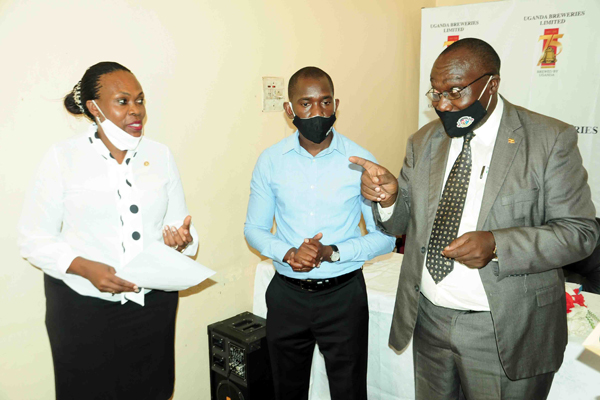Prime
Lifestyle challenges putting pressure on businesses

Ms Mutyabule chats with others guests on the sidelines of the Skills for Life programme in Kampala recently. PHOTO | COURTESY
Lifestyle challenges and failure to separate the business from owners continue to negatively impact entrepreneurship, according to Ms Rosemary Mutyabule, the Enterprise Uganda director business advisory and consultancy services.
Speaking on the sidelines of the Skills for Life programme in Kampala, Ms Mutyabule said many entrepreneurs sustain their lifestyles on the business, which not only threatens the foundation but also erodes business capital and stunts expansion.
“Many of our businesses are entwined with their owners. Thus, owners’ lifestyles will sometimes put pressure on the business, which might work against it,” Ms Mutyabule said, noting lifestyle challenges was the leading cause of capital erosion .
The Skills for Life programme, which is a partnership between Uganda Breweries and Enterprise Uganda, seeks to provide students from vocational and technical institutions with skills that can enhance employability or build capacity of such students to start their own businesses.
The programme, which has so far supported about 70 students from Acholi, Kitgum, Kampala and Kabale districts, also seeks to change the mindset of young Ugandans for sustainable employment creation.
Mr George Mutekanga, the Ministry of Education assistant commissioner in charge of private schools and institution of higher learning, said it was important that government appropriately handles the youth factor, which makes up majority of the population.
“70 per cent of our population are youth. Of this, between 50 and 80 per cent are unemployed. Even those who are employed are underemployed,” he said, noting it is important for Ugandans to devise ways through which unemployment can be tackled.
Mr Mutekanga also noted that whereas government has been skilling young people under the Skilling Uganda programme, there has been the challenge of lack of technical guidance and a negative attitude towards technical and vocational education.
Uganda has in the last 30 years put less focus on technical education thus allowing massive growth in the number of job seekers rather than job creators.
Mr David Onyango, the Uganda Breweries corporate relations manager, said youth must be supported to start small in order to organically build enterprises that have capacity to create quality jobs.




